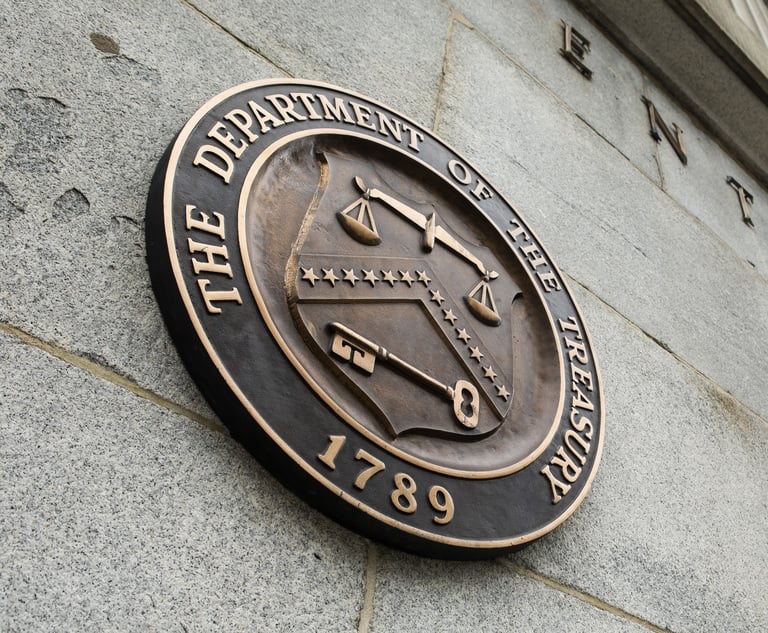Cybersecurity Spending on the Rise in 2019
As data security challenges continue to escalate, many law firms and corporate legal departments are upping their efforts to strengthen cyber defenses and minimize risks.
July 24, 2019 at 09:54 AM
3 minute read
 Debra Frank Montero, regional vice president with Robert Half Legal, in Miami.
Debra Frank Montero, regional vice president with Robert Half Legal, in Miami.
As data security challenges continue to escalate, many law firms and corporate legal departments are upping their efforts to strengthen cyber defenses and minimize risks. More than three-quarters of lawyers (76%), recently surveyed by recruiting firm Robert Half Legal, said their organization plans to increase spending on cybersecurity-related resources over the next 12 months. None of the respondents planned to decrease spending.
With the increasing prevalence of cyberattacks and online security issues, many legal organizations are taking proactive measures to better anticipate threats and protect sensitive client data. Recent laws such as the European Union's General Data Protection Regulation (GDPR) and the California Consumer Privacy Act of 2018 also are top concerns for legal teams.
These new data privacy mandates are placing more accountability on companies for protecting consumers' personal information, and many will face large fines if they fail to do so. Lawyers are collaborating closely with their technology, human resources, marketing and business development colleagues to help ensure their organizations remain compliant and, ultimately, competitive.
Legal organizations recognize they are a particular target for cyberattacks due to the high volume of sensitive information they maintain. For example, consider the significant volume of valuable data that law firms and corporate legal departments of all sizes hold—intellectual property agreements, contracts, customer, supplier and financial information, research on potential corporate mergers, evidence in potentially high-stakes litigation cases. In the wrong hands, such valuable and confidential information could prove costly to organizations and cause irreparable damage to their brand and reputation.
Should a law firm lose a client's confidential data to an attack, it could face serious legal and ethics violations as well. Law firms are not only a source for client data, they can provide hackers a possible gateway directly into clients' systems.
Additionally, cyberattacks are on the rise and data security challenges continue to escalate. As a result, legal organizations are implementing more proactive and sophisticated security measures to better anticipate threats and protect sensitive data.
With legal organizations increasing their data security initiatives, job growth in these practice areas has also increased creating a high demand for security and compliance specialists:
- Risk assessment, data privacy and cross-border data transfer initiatives are creating demand for legal professionals with experience in these matters. Experts in cybersecurity policy, procedures and training programs are also highly sought.
- Companies are engaging experienced compliance administration specialists to stay current and meet government regulations. Much of the hiring is being driven by new federal and state regulations related to healthcare, lease accounting and data privacy.
Along with hiring specialists to help with cybersecurity risks, there are other tools and resources legal departments can deploy:
- Updated data management systems: the budgets for cybersecurity are expanding and include a broad range of new system resources.
- New security software: Companies and law firms also are bolstering their technology-based security defenses, including software to enhance threat monitoring and detection, security assessments, risk analysis, penetration testing and monitoring services, security awareness training, and security metrics.
It's imperative that legal organizations continue to monitor the regulatory landscape to address changing laws regarding obligations to secure and protect confidential and personal data they possess from misuse, theft or exposure to unauthorized individuals.
Debra Frank Montero is regional vice president of Robert Half Legal, the premier provider of experienced project and full-time professionals for law firms and corporate legal departments in South Florida.
This content has been archived. It is available through our partners, LexisNexis® and Bloomberg Law.
To view this content, please continue to their sites.
Not a Lexis Subscriber?
Subscribe Now
Not a Bloomberg Law Subscriber?
Subscribe Now
NOT FOR REPRINT
© 2025 ALM Global, LLC, All Rights Reserved. Request academic re-use from www.copyright.com. All other uses, submit a request to [email protected]. For more information visit Asset & Logo Licensing.
You Might Like
View All

Don’t Forget the Owner’s Manual: A Guide to Proving Liability Through Manufacturers’ Warnings and Instructions
5 minute read

Trending Stories
- 15th Circuit Considers Challenge to Louisiana's Ten Commandments Law
- 2Crocs Accused of Padding Revenue With Channel-Stuffing HEYDUDE Shoes
- 3E-discovery Practitioners Are Racing to Adapt to Social Media’s Evolving Landscape
- 4The Law Firm Disrupted: For Office Policies, Big Law Has Its Ear to the Market, Not to Trump
- 5FTC Finalizes Child Online Privacy Rule Updates, But Ferguson Eyes Further Changes
Who Got The Work
J. Brugh Lower of Gibbons has entered an appearance for industrial equipment supplier Devco Corporation in a pending trademark infringement lawsuit. The suit, accusing the defendant of selling knock-off Graco products, was filed Dec. 18 in New Jersey District Court by Rivkin Radler on behalf of Graco Inc. and Graco Minnesota. The case, assigned to U.S. District Judge Zahid N. Quraishi, is 3:24-cv-11294, Graco Inc. et al v. Devco Corporation.
Who Got The Work
Rebecca Maller-Stein and Kent A. Yalowitz of Arnold & Porter Kaye Scholer have entered their appearances for Hanaco Venture Capital and its executives, Lior Prosor and David Frankel, in a pending securities lawsuit. The action, filed on Dec. 24 in New York Southern District Court by Zell, Aron & Co. on behalf of Goldeneye Advisors, accuses the defendants of negligently and fraudulently managing the plaintiff's $1 million investment. The case, assigned to U.S. District Judge Vernon S. Broderick, is 1:24-cv-09918, Goldeneye Advisors, LLC v. Hanaco Venture Capital, Ltd. et al.
Who Got The Work
Attorneys from A&O Shearman has stepped in as defense counsel for Toronto-Dominion Bank and other defendants in a pending securities class action. The suit, filed Dec. 11 in New York Southern District Court by Bleichmar Fonti & Auld, accuses the defendants of concealing the bank's 'pervasive' deficiencies in regards to its compliance with the Bank Secrecy Act and the quality of its anti-money laundering controls. The case, assigned to U.S. District Judge Arun Subramanian, is 1:24-cv-09445, Gonzalez v. The Toronto-Dominion Bank et al.
Who Got The Work
Crown Castle International, a Pennsylvania company providing shared communications infrastructure, has turned to Luke D. Wolf of Gordon Rees Scully Mansukhani to fend off a pending breach-of-contract lawsuit. The court action, filed Nov. 25 in Michigan Eastern District Court by Hooper Hathaway PC on behalf of The Town Residences LLC, accuses Crown Castle of failing to transfer approximately $30,000 in utility payments from T-Mobile in breach of a roof-top lease and assignment agreement. The case, assigned to U.S. District Judge Susan K. Declercq, is 2:24-cv-13131, The Town Residences LLC v. T-Mobile US, Inc. et al.
Who Got The Work
Wilfred P. Coronato and Daniel M. Schwartz of McCarter & English have stepped in as defense counsel to Electrolux Home Products Inc. in a pending product liability lawsuit. The court action, filed Nov. 26 in New York Eastern District Court by Poulos Lopiccolo PC and Nagel Rice LLP on behalf of David Stern, alleges that the defendant's refrigerators’ drawers and shelving repeatedly break and fall apart within months after purchase. The case, assigned to U.S. District Judge Joan M. Azrack, is 2:24-cv-08204, Stern v. Electrolux Home Products, Inc.
Featured Firms
Law Offices of Gary Martin Hays & Associates, P.C.
(470) 294-1674
Law Offices of Mark E. Salomone
(857) 444-6468
Smith & Hassler
(713) 739-1250






